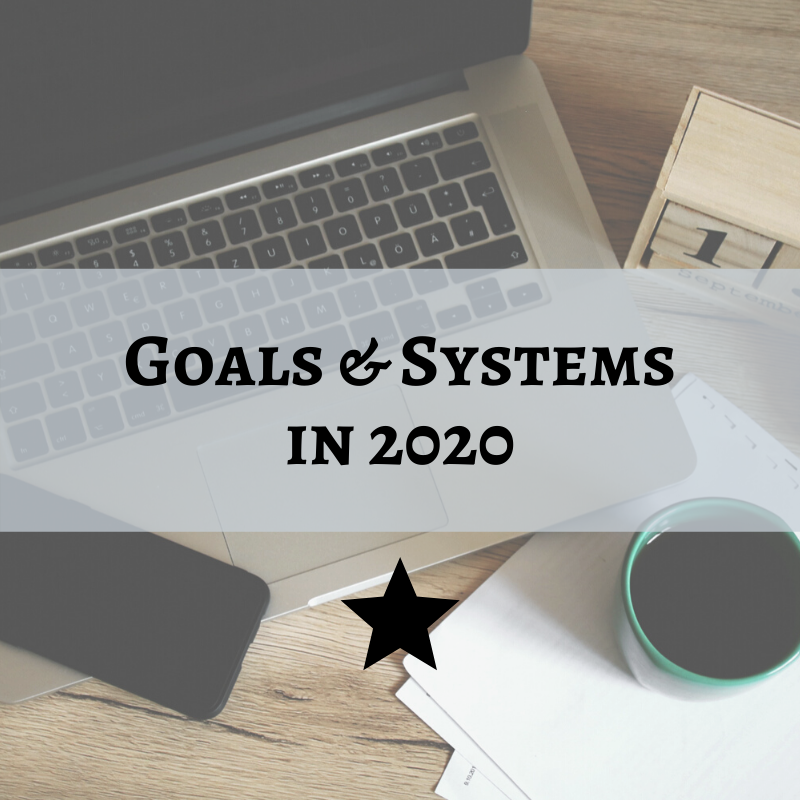So, we’re already over halfway through the first month of 2020. Often times, by now, people have become frustrated with their New Year’s Resolutions and have either given up completely or are ready to. And it’s completely understandable when, usually, we tend to expect too much of ourselves too quickly.

Change—real change—is about tiny steps toward an end. You’ve heard the expression the best way to eat an elephant is one bite at a time? Very rarely do lifestyle changes happen all at once—at least the ones that last.
Goals and Habits
People don’t go from junk food addicts to Paleo experts overnight. If they try, often they fall off the bandwagon as their bodies start to react to the lack of carbs and sugar, which causes them to feel horrible. Couch potatoes don’t go from the couch to 5Ks overnight. If they did, they’d likely die after the first kilometer. (I know I would!)
I don’t say thesethings to discourage people from making goals or aiming to change their lifestyles. Instead, I want to encourage people to be realistic and be ready for the long haul.
New Year’s Resolutions are for the YEAR. That means we have 365 days to accomplish our goals. Want to run a 5K? Find one held in November/December, then start training for it a bit at a time. Want to ditch the junk food? Start by cutting eating out to 1-2 times a week and adding more water.
Then–as is almost always inevitable–if you slip, don’t chalk it all up to being a failure. Acknowledge the slip, pick yourself up, and start again tomorrow. You have a whole year to develop the habit!
Advice for Goals:
- Goals are more like guidelines, they are not set in stone. Feel free to tweak them as you need to.
- Don’t set unrealistic goals. Be honest with yourself—but don’t be afraid to challenge yourself either.
- Follow up with your goals on a monthly basis to see what is working and what is not.
- Break goals down into bite-size steps. Focus on the steps!
- Goals should be PROACTIVE. This means that goals are something you have control over and are an action. “I want to lose weight” is neither something you have control over nor is it a specific action. “I want to run 2 miles a day,” on the other hand, IS something you have control over and is a specific action.
Use Your Systems!
Something I’ve garnered over the last year is an understanding of systems. Systems are the tools and habits you have in place to be successful in your endeavors. And, to me, they seem far less daunting than the actual goals.
Tools are stuff like calendars, apps, to-do lists, routines, etc. For instance, I use ToDoist, a website/app, as my to-do list for the different aspects of my life. It’s digital and it syncs across devices. I can divide my tasks between categories (personal, homeschool, business, Realm Makers…) and types of tasks (email, appointments, phone calls, etc.).
Some tools I use:
- Google Calendar
- My Brilliant Writing Planner
- Habit tracker
- Weekly box for my medicine
- Morning Routine
- Evening Routine
- Menu Planning (I use Google Calendar)
Habits are actions we take on a regular basis to help get a specific result. I get up every morning at 5:45 a.m. This allows me time for quiet time with God and time to write before I jump into my day with the kids and homeschooling.
Other habits I have or aim to build this year:
- Exercise 5x/wk after lunch/dinner (depending on the time of the year)
- Evening Routine (to help me wind down so I’ll sleep better)
- Reading 30 minutes every night before bed
- Write 2,000 words/day, 6 days/wk
Our tools should support our habits to create the systems that help us reach our goals.
It is good to have an accountability partner or 2 to help keep you on track. This can be your spouse, if you both can be honest with each other without getting frustrated or offended. But I find it is usually easier to use someone who does not live with you. I have my Ladies of Spec, a mastermind accountability group, to help me out!
While there is a lot to enjoy this time of the year, I hope your goals are not causing you to become frustrated or discouraged. If they are, then maybe it’s time to focus more on systems and habits—the means—instead of the end goal. Build good systems, and those goals will fall in place more naturally.
What are some of your goals for 2020?


